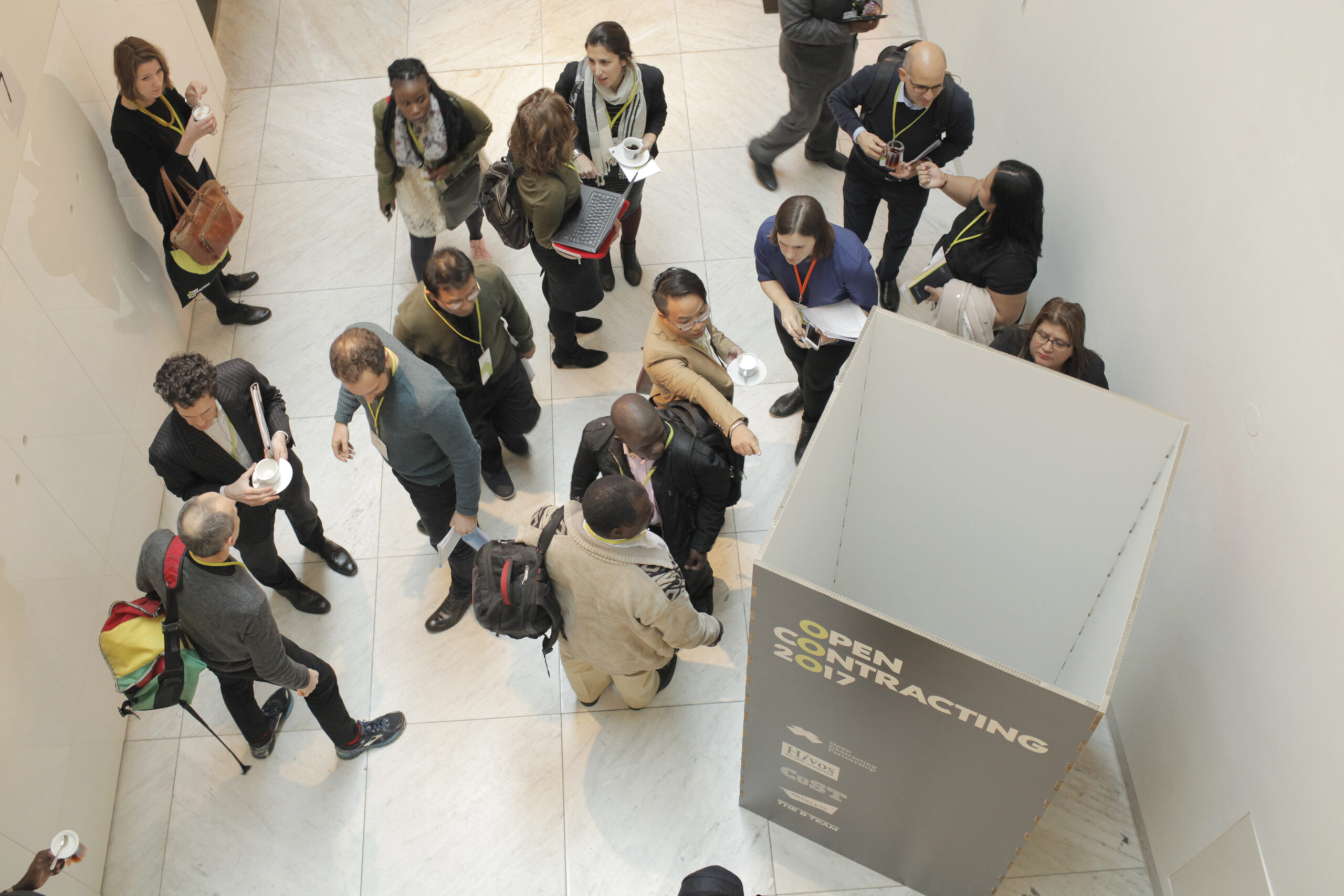Open Contracting Summit key takeaways and follow ups
By Daniel Dietrich
On 28-29 November 2017, around 200 of the best and brightest leaders and innovators from over 37 countries joined the open contracting global summit. Hivos is proud to have been co-hosting the Open Contracting Global Summit 2017 #OCGlobal17 together with our partners Article19, The B Team, the Construction Sector Transparency Initiative (CoST), and the Open Contracting Partnership.
The summit was an important milestone for the global community to reflect where we are and where we might be heading. The summit celebrated what has been achieved but we also had a critical dialogue (see two reflections from Tim Davis and Jiri Skuhrovec) on the shortfalls, failures and risks we face moving the agenda forward. Watch video interviews with keynotes taken at the summit and read the follow up blog post here.
We would like to thank all of the participants for their valuable contributions to the summit and its outputs. And even more importantly, for co-shaping the agenda to jointly make public contracting processes more transparent, accountable and efficient.
At Hivos, we are delighted to see such a diverse group of stakeholders finding so much common ground.
Our key takeaways are:
- Open Contracting is not a technocratic exercise, but a long-term reform process that requires all stakeholders to engage and contribute. Reforming public contracting processes is about ensuring people have access to high quality public goods and services. It is about access to resources and chances, about inequality and access power.
- Open Contracting needs certain building blocks to be translated into positive social and economic benefits for society. These include: a functional civic space where citizens can exercise and enjoy their fundamental rights, namely: freedom of information, freedom of expression (and media), freedom of association and freedom of assembly. These rights must be embedded into a conducive legal framework, policies and practices.
- Open Contracting is not about data, and while Open Contracting Data Standard is a key step to publishing contracting data and documents to they can be easily be analysed and linked, publishing data is not enough: The entire process needs to be opened up: allowing for consultations and citizen participation in the planning phase of public contracts; establishing feedback channels for citizen monitoring.
- Open Contracting is about citizen engagement and supporting infomediaries in civil society and media to help monitor and analyse contracting processes for public scrutiny to hold governments and the private sector to account.
- Open Contracting needs more engagement from the private sector. While a level playing field and increased fair competition in public contracting appears to be good arguments why private sector should care it, direct vocal support from the private sector for this reform agenda remains limited.
Session at Global Summit. Photo: Judith Quax, 2017.
Announcing commitments, new collaborations and initiatives
The summit concluded with a series of public announcements on follow ups, new collaborations and new initiatives. At Hivos, we are very proud to be part of some of them:
- A collective action for tackling corruption in contracting, known as the Clean Contracting Manifesto, has been launched by Transparency International, Hivos, CoST, Article 19 and the OCP.
- Development Gateway, Hivos, The B Team, DIGIWHIST, and the OCP launched a research agenda to gather better evidence for data-driven advocacy with governments and businesses.
- The B Team, working in collaboration with Invest in Africa, Hivos, the World Economic Forum, Safaricom and other partners, plans to mobilise private sector support for open contracting in Kenya, recruiting a group of companies to develop and promote leadership practices, like those of the African Partner Pool that enables easier and more transparent access to opportunities for SMEs.
- In Latin America, an open contracting working group, hosted by the Latin American Network for Government Procurement in collaboration with ILDA, Hivos and the OCP and financed by the IDRC, will bring the region’s public procurement agencies together.
- Together with its partners Hivos will be announcing a call for Investigative Partnership Grants to encourage collaborations between civil society and investigative journalists to jointly do effective investigations into public contracting.
- Hivos and the OCP will run a new round of Innovation Challenges in 2018 with a specific focus on developing countries and innovative solutions for tricky scenarios where local circumstances make open contracting not an easy agenda.
You can find all of the announcements in the Open Contracting Summit 2017 report.
We would like to thank all of you who have shaped the agenda with us and we are looking forward to working with many of you in the years to come. The future is open!
“Government contracting is better, smarter and fairer when citizens and businesses are actively involved. Open contracting can improve lives everywhere. It is vital to modernising government, fighting corruption, reforming markets and fostering business innovation and entrepreneurship.” – As captured in the summit.








